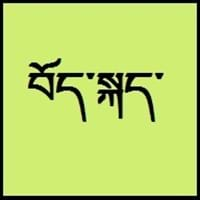Countries
Austria, Belgium, Germany, Italy, Liechtenstein, Luxembourg, Switzerland
China, Nepal
National Language
Germany
Nepal, Tibet
Second Language
North Dakota, United States of America
Not spoken in any of the countries
Speaking Continents
Europe
Asia
Minority Language
Czech Republic, Denmark, Former Soviet Union, France, Hungary, Italy, Namibia, Poland, Romania, Slovakia, Slovenia
China, India, Nepal
Regulated By
Council for German Orthography
Committee for the Standardisation of the Tibetan Language
Interesting Facts
- One of the large group of Indo-Germanic languages is German.
- The second most popular Germanic language spoken today behind English is German language.
- Tibetan dialects vary alot, so it's difficult for tibetans to understand each other if they are not from same area.
- Tibetan is tonal with six tones in all: short low, long low, high falling, low falling, short high, long high.
Similar To
Dutch, Danish, Norwegian, Swedish and English Languages
Not Available
Derived From
Albanian Languages
Not Available
Alphabets in
German-Alphabets.jpg#200
Tibetan-Alphabets.jpg#200
Scripts
Latin
Tibetan alphabet, Tibetan Braille
Writing Direction
Left-To-Right, Horizontal
Left-To-Right, Horizontal
Hello
hallo
བཀྲ་ཤིས་བདེ་ལེགས། (tashi delek)
Thank You
Danke
ཐུགས་རྗེ་ཆེ་། (tujay-chay)
How Are You?
Wie geht es dir?
ཁྱེད་རང་སྐུ་གཇུགས་བདེ་པོ་ཡིན་པས།
(kayrang kusu debo yimbay?)
Good Night
gute Nacht
གཟིམ་ལཇག་གནང་དགོས་། (sim-jah nahng-go)
Good Evening
guten Abend
དགོང་དྲོ་བདེ་ལེགས།
Good Afternoon
guten Tag
ཉིན་གུང་བདེ་ལེགས།
Good Morning
guten Morgen
སྔ་དྲོ་བདེ་ལེགས། (nga-to delek)
Please
bitte
thu-je zig / ku-chee.
Sorry
Verzeihung
ཀོང་དགས་། (gawn-da)
Bye
Tschüs
ག་ལེར་ཕེབས་། (kha-leh phe)
I Love You
Ich liebe dich
ང་ཁྱེད་རང་ལ་དགའ་པོ་ཡོད་ (nga kayrâng-la gawpo yö)
Excuse Me
Entschuldigung
དགོངས་དག བཟོད་དུ་གསོལ། ཐུགས་རྗེ་གཟིགས།
Dialect 1
Swiss German
Central Tibetan
Where They Speak
Switzerland
China, India, Nepal
Dialect 2
Swabian German
Khams Tibetan
Where They Speak
Germany
Bhutan, China
Dialect 3
Texas German
Amdo Tibetan
Where They Speak
Texas
China
Speaking Population
Not Available
Second Language Speakers
Not Available
Native Name
Deutsch
བོད་སྐད་ (pö-gay)
Alternative Names
Deutsch, Tedesco
Bhotia, Dbus, Dbusgtsang, Phoke, Tibetan, U, Wei, Weizang, Zang
French Name
allemand
tibétain
German Name
Deutsch
Tibetisch
Pronunciation
[ˈdɔʏtʃ]
Not Available
Ethnicity
Germans
tibetan people
Origin
6th Century AD
c. 650
Language Family
Indo-European Family
Sino-Tibetan Family
Subgroup
Germanic
Tibeto-Burman
Branch
Western
Not Available
Early Forms
No early forms
Old Tibetan, Classical Tibetan
Standard Forms
German Standard German, Swiss Standard German and Austrian Standard German
Standard Tibetan
Language Position
Not Available
Signed Forms
Signed German
Tibetan Sign Language
Scope
Individual
Not Available
ISO 639 6
deus
Not Available
Glottocode
high1287, uppe1397
tibe1272
Linguasphere
52-ACB–dl & -dm
No data Available
Language Type
Living
Not Available
Language Linguistic Typology
Subject-Object-Verb, Subject-Verb-Object
Not Available
Language Morphological Typology
Fusional, Synthetic
Not Available
German and Tibetan Greetings
People around the world use different languages to interact with each other. Even if we cannot communicate fluently in any language, it will always be beneficial to know about some of the common greetings or phrases from that language. This is where German and Tibetan greetings helps you to understand basic phrases in German and Tibetan language. German word for "Hello" is hallo or Tibetan word for "Thank You" is ཐུགས་རྗེ་ཆེ་། (tujay-chay). Find more of such common German Greetings and Tibetan Greetings. These greetings will help you to be more confident when conversing with natives that speak these languages.
German vs Tibetan Difficulty
The German vs Tibetan difficulty level basically depends on the number of German Alphabets and Tibetan Alphabets. Also the number of vowels and consonants in the language plays an important role in deciding the difficulty level of that language. The important points to be considered when we compare German and Tibetan are the origin, speaking countries, language family, different greetings, speaking population of these languages. Want to know in German and Tibetan, which language is harder to learn? Time required to learn German is 30 weeks while to learn Tibetan time required is 24 weeks.





